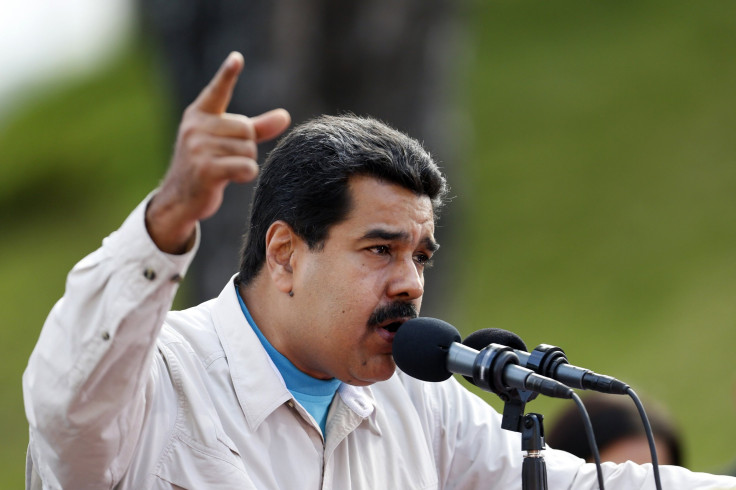Venezuela-Uruguay Spat Over Claims Of US-Backed Coup Tenses Relations Ahead Of Regional Meeting

Tensions are rising between Venezuela and the United States, but Venezuela has always been able to count on support from its Latin American allies. But a diplomatic spat this week between Venezuela and Uruguay is hinting that one of Caracas’ longtime friendships may be going through a rough patch.
The dustup, in which Venezualan President Nicolás Maduro alluded to Uruguay’s vice president as a “coward,” could make for an awkward encounter when foreign ministers of the Unasur regional group meet this weekend to discuss Venezuela’s political situation.
Maduro has been ramping up his rhetoric against the U.S. over the past few weeks, first accusing Washington of backing a coup plot against his government, and then railing against new sanctions U.S. President Barack Obama issued against seven Venezuelan officials this week. Ecuador and Cuba, Venezuela’s closest friends in the region, both pledged their solidarity to Caracas. But Uruguay’s vice president, Raúl Sendic, took on a more careful tone.
“[Venezuela] has been talking about external interference,” Sendic said during a press conference last week. “We do not have any elements to accompany this affirmation, but without a doubt it is a process that worries us and we will continue watching it carefully.”
Maduro was apparently unhappy with the remark. During a speech Monday, he referenced the remark, although he didn’t name Sendic specifically. “A friend of the south, a great friend that has an important position in the government, declared that there was no record of U.S. interference in Venezuela,” he said, according to local reports. “What a shame, this declaration!” He later continued: “At times, Commander [Hugo] Chavez told me, ‘Stay calm Nicolás, the world is full of cowards.’ The cowards are forgotten by history, it’s that simple.”
In response, Uruguay called in its Venezuelan ambassador in Montevideo for consultations on what the administration called Maduro’s “unfriendly statements." Shortly afterward, it suspended a planned meeting of the Union of South American Nations, or Unasur, the regional bloc that was scheduled to discuss members’ response to the U.S. sanctions. The meeting has since been rescheduled to Saturday and moved from Montevideo to Quito, Ecuador.
Uruguay and Venezuela have traditionally been close allies in the Latin American left. José Mujica, the former president of Uruguay, was and continues to be an enthusiastic supporter of Maduro. He reaffirmed his support for Venezuela’s government this week, saying there was likely U.S. intervention. “I don’t need reports or evidence that the Americans are meddling, they meddle everywhere! The novelty would be if they didn’t meddle,” he told Uruguay’s Gente radio station.
He also questioned the language included in Obama’s executive order labeling Venezuela a threat to national security. “Who is going to say that Venezuela is a threat to the U.S.?” Mujica asked. “Venezuela has problems and they should be solved by Venezuelans.”
But newly inaugurated Tabaré Vázquez, who assumed Mujica’s presidential post earlier this month, has remained more cautious than his predecessor on Venezuela’s political situation, calling the escalating internal political tensions there “worrying.” Uruguayan press, meanwhile, has observed some conflicting opinions within Uruguay’s ruling political coalition, the Broad Front, on Venezuela, noting that some members of the bloc have fretted about Maduro’s repression of political opposition members, while others have upheld the idea of U.S. interference. The party is due to present a statement on Venezuela Friday afternoon.
© Copyright IBTimes 2024. All rights reserved.






















